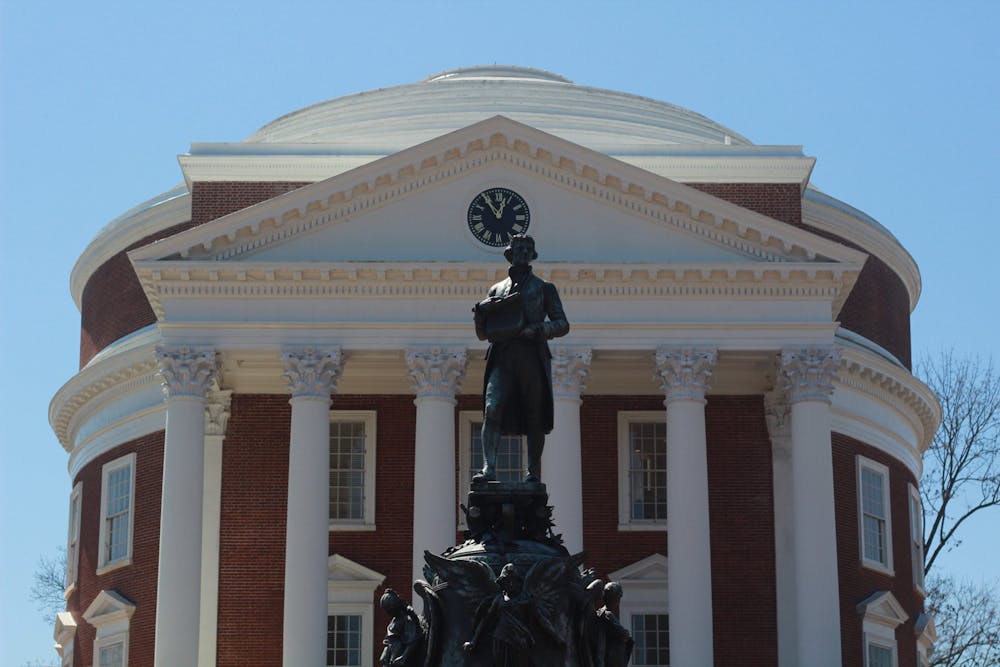In a statement sent to presidents of Virginia’s public universities, Virginia Governor Glenn Youngkin asked schools to increase their commitment to free speech by taking on more faculty of “diverse political perspectives” and supporting events and forums that allow for the civil exchange of ideas.
Sent Tuesday, the letter begins with an acknowledgment of the added strain the pandemic has incurred on students in regards to their “mental health, academic achievement, social and emotional development, and sense of community.” Beginning his suggested plan toward normalcy, Youngkin listed a set of changes under various themes, which he hoped the leaders would implement into their universities’ current operations.
In a section titled “Vibrant Campus Life,” the governor asks the university leaders to reinstate fully in-person leaning, as well as ensure campus safety by partnering with Youngkin’s Violent Crime Task Force program, citing a need to “continue supporting our police and first responders.”
The University recently undertook its own measure to curb crime on and off Grounds, establishing the Community-Oriented Policing Squad, which includes University Police Department officers stationed in areas near Grounds considered to have high rates of crime. The program faced criticism for being an inadequate approach to crime, with critics advocating instead for higher investment in social and economic investment in the community.
Youngkin also asks that universities encourage greater “free inquiry” and increase their commitments to free speech. Youngkin’s first recommendation is the development of a shared statement that supports freedom of speech, citing the University of Chicago’s statement of free expression. Endorsed by the Board of Visitors, the University released its own statement affirming its commitment to free expression and free inquiry.
Freedom of speech has been a heated topic of discussion recently following an editorial published by The Cavalier Daily that garnered national attention. The editorial addressed former vice president Mike Pence’s impending visit to Grounds.
Youngkin also asked that the university leaders prioritize the hiring of staff and faculty with “diverse political perspectives,” as well as support events that facilitate the civil exchange of ideas.
University spokesperson Brian Coy said in an email statement to The Cavalier Daily that diversity is an “essential” element of the University.
“The students, faculty, and staff who make up this community come from a wide variety of places, viewpoints, and walks of life,” Coy said.
Youngkin’s letter goes on to ask that the university leaders do not increase tuition by reducing costs and being “creative and strategic problem-solvers.” The letter further suggests a review of staffing as well as majors and course offerings. In December, the Board voted to raise tuition for the 2022-23 and 2023-24 academic years following a tuition freeze for both the 2019-2020 and 2021-2022 school year.
“We also work hard to make a U.Va. education as accessible and affordable to our students as we can, which is reflected in the University’s consistent rating as one of the top public institutions in the nation both for the experience we offer students and the value they receive for their tuition dollar,” Coy said.
Finally, Youngkin urged the leaders to alter what they consider as success. Arguing for another metric of college’s overall success, he asked the university leaders to track post-graduation outcomes by employment and wage in addition to the graduation rate tracking already done. He also asked for greater commitment to non-traditional pathways for students in Virginia, including strengthening “Pathway Programs,” which serve as a pipeline for underserved students to receive a college education.
The letter ends with Youngkin mentioning the high interest Fortune 100 companies typically have in graduates from Virginia universities and urged the university leaders to maintain the high-quality education that renders the graduates such optimal candidates for employment.







